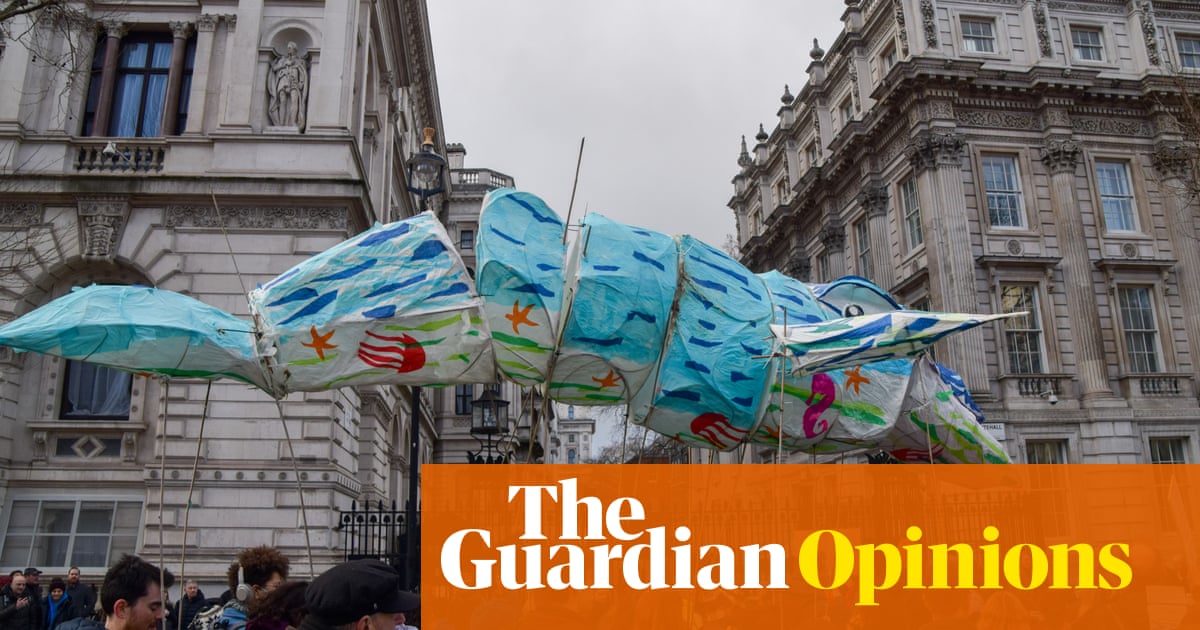
On Saturday, a friend who spends most weekends trekking halfway across the country to check up on her increasingly frail parents spent an anxious morning scouring empty garages for petrol. She can’t have been alone.
The strains of a weekend’s stockpiling are starting to show: some teachers can’t fill up to get to school, nurses are reduced to cadging lifts to hospital, and care workers who rely on their cars to reach vulnerable people in isolated areas are struggling. And then there are the purely human dilemmas. Imagine being heavily pregnant, bag all packed for the labour ward, and the fuel light is flashing.
The longer this goes on – and emergency measures such as calling up army reservists can’t produce results overnight – the more gaps may emerge in things once taken for granted. Appointments will be cancelled, deliveries delayed, services suddenly unavailable. We have started to shift from being a “just in time” society, freewheeling through life blithely assuming things will always be there, to a “just in case” one, wondering nervously what we might run out of next. (It will probably be something most of us never even realised mattered, similar to the carbon dioxide shortage that rattled ministers this month.)
The legacy of Covid shutdowns, followed by a rush of bounce-back growth, is a global strain on raw materials and on every step of production and supply chains – which has been compounded in this country by a witless hard Brexit. There’s still plenty of fuel sitting in refineries, but the resulting shortage of tanker drivers to get it to British forecourts was all it took to spark a run on the pumps.
But on top of this, the very idea of a shortage of something sends humans into what’s known as scarcity mindset, a jumpy and selfish state where our own survival becomes uppermost and each stampede arguably only makes the next one more likely. People caught short by the Great Toilet Roll Drought of 2020 may well have resolved not to get caught again when queues started forming at the pump. Drivers who were restrained at first did the right thing, but will be kicking themselves if things still aren’t sorted by the end of this week.
Forecourts don’t ultimately run dry because of a few idiots manically filling jerry cans but because millions of people make the same individually logical, but collectively chaos-inducing, decision that it’s better to be safe than sorry: to fill up when there’s half a tank left, in anticipation of a long trip in a few days’ time, rather than when you’re on your last couple of litres; or buy loo rolls on a week when normally you wouldn’t bother.
Relatively small, unpanicky adjustments to individual lives can have a scarily big effect when we all suddenly make them simultaneously – in an economy calibrated (not unreasonably, before Brexit and Covid) for maximum efficiency rather than resilience to a series of rolling shocks, and in a political climate where trust in politicians’ reassurances is low.
The first step to breaking this feedback loop is clear, honest and trustworthy leadership – which means solving it would arguably be easier if Boris Johnson hadn’t spent the last couple of years offering the opposite. Failing that, the consensus from emergency planners and psychologists is that if you don’t want to trigger panic buying, then don’t use the word “panic” – which just makes people think there’s something to panic about. And don’t talk about shortages either, which immediately triggers the fear of scarcity. Ministers should instead say that there’s enough to go round if everyone takes only what they actually need.
Encouraging pro-social behaviour – putting senior NHS figures upfront to talk about nurses struggling to get into work, say – might help, as could concrete information about when things might be back to normal, and prioritising key workers.
Yet the fact remains that after a disorienting year and a half under the shadow of a pandemic, we now seem to be entering a new era of uncertainty and unpredictability. Over time, that can’t help but leave a mark.
Optimists on the left will hope the net result is to show up this government for what it is, even though bungling its way through the pandemic has barely dented Tory poll leads. But the gloomy among them will note that insecurity has historically bred intolerance and a determination to look after your own, which is why recessions typically push electorates to the right.
All we really know for sure is that the legacy of a jittery, anxious winter is unlikely to have melted by spring.
Gaby Hinsliff is a Guardian columnist












